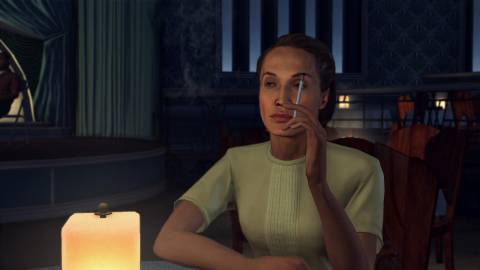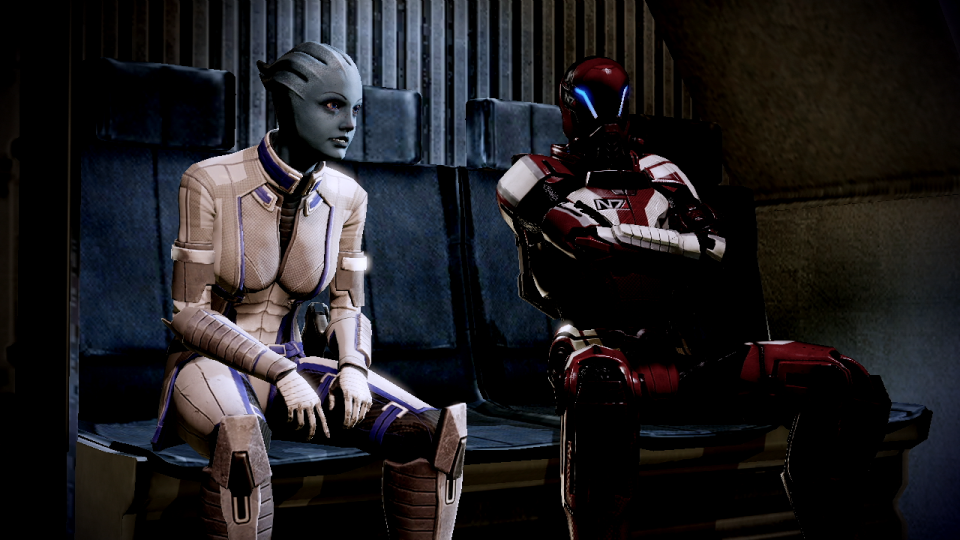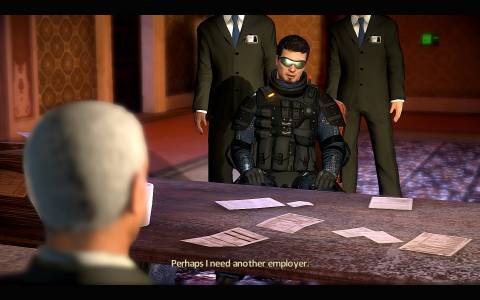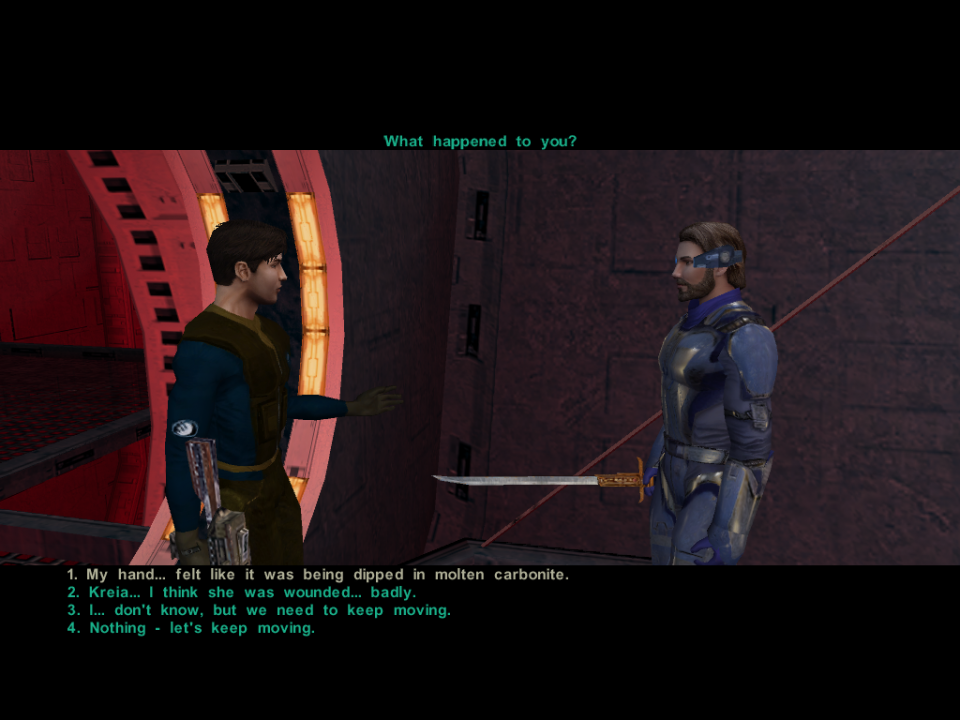
[Note: This article used to refer to "Jake" as "Jeff," until I realized I'd spaced out while writing on why that might be confusing.]
No one knows exactly why a child is born with Asperger's Syndrome, a disorder in the same family as autism. Those afflicted have significant trouble responding to typical social situations. Someone with Asperger's can also be prone to intense interest in a specific subject. Unlike traditional autism, an individual with Asperger's does retain linguistic and cognitive development.
If you meet someone with Asperger's, you may not be able to tell. They may just seem...different.
You may also go several decades of your life without knowing you even have it. Like Jake.
Jake, a 25-year-old from Sweden I've been talking to, has Asperger's. His real name is not Jake, but he is 25-years-old and he is from Sweden. Jake, who was only recently diagnosed, asked to remain anonymous because he'd rather people "judge me for who I am than my diagnosis."
I wanted to talk to Jake because of an article on Joystiq about how L.A. Noire might be difficult for anyone with Asperger's to play, given the reliance on analyzing, interpreting and acting upon facial cues. Doing all three of those things are difficult for Jake and others with Asperger's. Jake has not played L.A. Noire, but he told me that he plans to eventually. Ironically, he's someone that's drawn to games with deep social aspects, like BioWare's Mass Effect and Dragon Age series.
He credits Anticipation on NES and translating RPGs into Swedish with teaching him English.
"It's kind of ironic that what I shy away from in real life is that I seek the most in video games--to interact with people," he told me. "It's not really been a problem in games, in fact it is probably part of the reason I love any game that have social interaction like Dragon Age, Mass Effect and such. For me those games are more about interacting with the party members than anything else."

Jake's messages to me are long, detailed and very specific. At one point, he apologizes. When he begins to describe what his mental processes are like, his sentences go on and on and on.
"I have to stop before I flood you with my theories about everything," he said. "I cannot stop thinking about these sort of things. It's like my brain is constantly running folding@home or something. It is always analyzing my actions, people's reactions etc etc. In fact when I play games is one of the few moments where my brain can relax and not run several different threads and analyze things. I become immersed into the video game world and can forget about everything else."
The way Jake describes it, he struggles to slow his brain down. Stuff that happens in the background for us, seemingly automatic, is foreground for him. When approaching a traffic light, you and I wait for the light to turn green, then cross. That's not possible for Jake. He calculates the speed of traffic flow, how each of hits steps and hand movements will influence the action of crossing the street, and spends time calculating when--or if--he should press the crossing button.
"To make a perfect choice you'd have to be God, and see every possible outcome and choose the best one," he explained. "In games the number of outcomes is limited, but not in real life. Otherwise I would not be able to live any sort of normal life. The only problem is that I will spend a lot of time analyzing if I made the correct decision afterwards which takes up a lot of my 'CPU time' to use a computer analogy. But analyzing the outcome is at least a lot simpler after the fact since you know what happened the only question is why it happened. It becomes a sort of reverse engineering of every encounter which is how I learn. It is not unlike how a computer would work."

Sandbox ridiculousness aside, in games, there are a finite number of options. When Jake boots up a game, even one with many "choices" like Mass Effect, there are limits.
You have all the time in the word to decide which path to head down or which dialogue option to exercise in Mass Effect--time to analyze. Some games apply pressure to the player. Alpha Protocol provides a finite choice space. The moment a conversation is initiated, a timer begins counting down. If you don't quickly make a decision, the game will force you to make one. In the game, however, the results of those actions impact the avatar, not the player. Thus, Jake doesn't stress.
"I just went with suave the whole way through because I wanted it to role play as that kind of character," he said. "Also it is not me in games. If I say choose an option that offends someone only my in game character has to deal with the consequences so it doesn't stress me out. Not to mention that there are a limited number of choices in a game which makes it easy to analyze each one compared to in real life when you can literally say anything. "
And while games have spent years coming up with new ways for players to influence the world, in the end, it's all in a virtual environment. Jake has spent most of his life's free time playing games, and since encountering Star Wars: Knights of the Old Republic, he's been enamored with role-playing games. In many ways, social interactions with video game characters give Jake an opportunity to practice his own lacking social skills and feel the satisfaction of a social interaction.

"It's basically a primitive form of holo deck for me," he said. "Have you seen the episode of Star Trek: The Next Generation when Barclay suffers from holo deck addiction? He creates holo deck representations of the people in the Enterprise because it is much easier for him to interact with them there and he feels more confident. In real life he can barely speak to women, but on the holo deck he is the exact opposite. I think it is safe to say that it fulfills a need for social interaction that is not fulfilled in real life because I'm too worried about saying something dumb or offend someone that I just don't speak to them."
One obstacle Jake hasn't overcome is multiplayer. Those people are real. He still plays online--just muted. Then again, that's usually what I end up doing after the fifth racial slur is dropped, too.
We all play games for different reasons. Maybe it's escapism for one person, exploration of a new medium for another. For Jake, it's something else. It realizes a need. Throughout our conversation, Jake dropped the term "in real life" many times, underscoring the personal disconnect he feels between his ability to interact socially in a virtual environment through games and "in real life."
"I think many people who become very successful in an MMO often are not successful in real life which is why it means so much to them to be successful somewhere," he said. "You may be just another guy in real life but online you are the king of the server. It just so happens that the need I want to fill is the social interaction need, although that is certainly not the only need, but I think it is the largest."